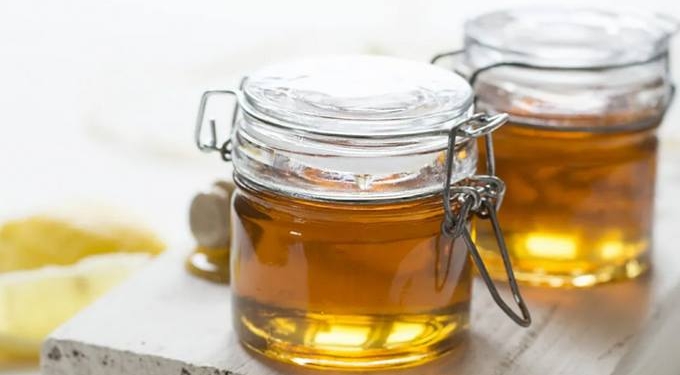
By Kaitlyn Berkheiser | EcoWatch
Acacia honey is produced by bees who pollinate the flowers of the black locust tree, native to North America and Europe.
It's said to boast several health benefits, which are likely attributed to its high antioxidant content.
This article reviews the nutrition, benefits, uses, and potential downsides of acacia honey.
What is Acacia Honey?
Acacia honey is derived from the nectar of the Robinia pseudoacacia flower, commonly known as the black locust or false acacia tree (1Trusted Source).
This unique honey is typically labeled and sold as acacia honey in Europe but is commonly found as American acacia or locust honey in the United States.
Compared with traditional honey, it's often much lighter in color, appearing almost transparent.
It has a flower-like aroma and sweet, delicate flavor.
Conveniently, acacia honey remains liquid longer and crystallizes much slower than traditional honey. This is likely due to its higher fructose content (2Trusted Source, 3Trusted Source).
Because it abstains from solidifying for longer, this honey is highly popular and can be more expensive than traditional types of honey.
Summary
Acacia honey is made from nectar derived from the black locust tree. It's lighter in color and crystallizes slower than traditional honey.
Nutritional Profile of Acacia Honey
Like traditional honey, 1 tablespoon (21 grams) of acacia honey provides around 60 calories and 17 grams of sugar (4Trusted Source, 5Trusted Source).
Acacia honey includes the sugars glucose, sucrose, and fructose, though fructose is the most prevalent (2Trusted Source).
Nutritionally, it provides no protein, fat, or fiber. On the other hand, it contains small amounts of several vitamins and minerals, such as vitamin C and magnesium (4Trusted Source).
What's most impressive about acacia honey is its high content of powerful plant compounds like flavonoids, which act as antioxidants (1Trusted Source, 6Trusted Source, 7Trusted Source).
Summary
Nutritionally, acacia honey is primarily made up of carbs in the form of sugars, and it's rich in powerful plant compounds with antioxidant properties.
Benefits of Acacia Honey
Acacia honey is not just useful for culinary purposes. While it shares the ordinary health benefits of traditional honey, it also has unique properties of its own.
Here are some of the health benefits of acacia honey.
Rich in Antioxidants
Acacia honey supplies many important antioxidants, which may contribute to its potential health benefits ( 1Trusted Source, 7Trusted Source, 8Trusted Source).
Antioxidants protect your cells against damage caused by free radicals. Over time, free-radical damage can contribute to disease (9Trusted Source).
Flavonoids are the main type of antioxidants in acacia honey. A diet high in flavonoids may reduce your risk of chronic conditions, including heart disease and certain types of cancer (8Trusted Source, 10Trusted Source, 11Trusted Source).
Though not as prevalent as flavonoids, this honey also contains beta carotene, a type of plant pigment with powerful antioxidant properties (12Trusted Source).
Eating beta-carotene-rich foods and supplements has been associated with improved brain function and skin health (13Trusted Source, 14Trusted Source, 15Trusted Source).
One test-tube study even showed that acacia honey effectively stopped the spread of lung cancer cells (16Trusted Source).
Natural Antibacterial Properties
Many of acacia honey's healing abilities are likely attributed to its antibacterial activity.
The honey contains components needed to produce and slowly release small amounts of hydrogen peroxide (3Trusted Source, 17Trusted Source).
Hydrogen peroxide is a type of acid that kills bacteria by breaking down their cell walls (18Trusted Source).
One study discovered that acacia honey proved effective against Staphylococcus aureus and Pseudomonas aeruginosa, two types of antibiotic-resistant bacteria. It concluded that its high levels of powerful hydrogen peroxide were likely responsible (19Trusted Source).















